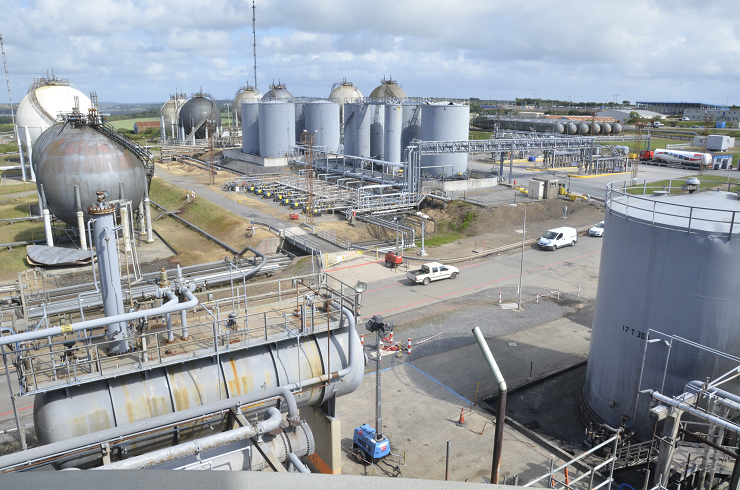
Each year, Britain’s oil refineries send millions of barrels of surplus gasoline across the Atlantic to fuel America’s cars. The vital export trade appears to have stopped in June.
Having cut production of the motor fuel more deeply, and for longer, than their competitors, Britain’s oil refineries missed out last month as the U.S. stepped up imports from other European nations. The U.K. didn’t send any gasoline to America last month, probably the first time that’s happened since at least the start of 2012, according to tanker tracking and trade data compiled by Bloomberg.
Europe’s oil refiners make more gasoline than the continent needs, leaving a surplus that often finds its way to the U.S. For the U.K., it’s a vital export trade, worth $1.83 billion last year, according to customs data compiled by Bloomberg.
The trade flow across the Atlantic suffered massive disruption this year, when governments told people to stay at home, bringing transportation systems to a halt. Oil refiners moved into survival mode, cutting processing rates and halting key units such as so-called fluid catalytic crackers, or FCCs, which make gasoline.
Tanker-tracking data show that no oil tankers left the U.K. and sailed to the U.S. in June. That said, it’s possible that customs data could include exports if any shipments in late May or early July are counted in figures for last month.
Flows across the Atlantic from the U.K. are dominated by Valero Energy Corp.’s plant in Pembroke in Wales. That refinery has a big FCC by European standards, and Valero took it offline for about six weeks from early May, according to Genscape. Valero didn’t respond to requests for comment.
“The site has reduced throughput in line with other refiners due to the Covid pandemic, which would also naturally reduce gasoline production,” said Shiv Talsania, a refining analyst at Facts Global Energy in London, referring to Pembroke.
Pembroke’s exports to the U.S. have averaged 198,000 tons a month since Bloomberg started monitoring that tanker route at the start of 2018. That’s about 55,000 barrels a day and about one seventh of shipments from Europe into the world’s biggest gasoline market.
Two other U.K. refineries, Exxon Mobil Corp.’s Fawley and Total SA’s Lindsey, also make shipments, but less regularly. The U.K. is usually the second-biggest European shipper to the Americas, after the Netherlands, which is home to a cluster of the region’s biggest processing plants.
The U.K. also ships gasoline to West Africa. That trade too took a hit last month, according to tanker-tracking data compiled by Bloomberg.
Refineries in the Netherlands have started increasing shipments as U.S. demand has recovered, leading last month’s increase in flows observed in tanker-tracking data compiled by Bloomberg.
The whole trade flow remains vulnerable, according to Richard Matthews, head of research at E.A. Gibson Shipbrokers Ltd. The re-introduction of travel restrictions in some regions puts the recovery in demand at risk and U.S. inventories also remain high.
“Given the worsening Covid-situation, there is no hope of a sustained pull for gasoline in the U.S.,” Matthews said.